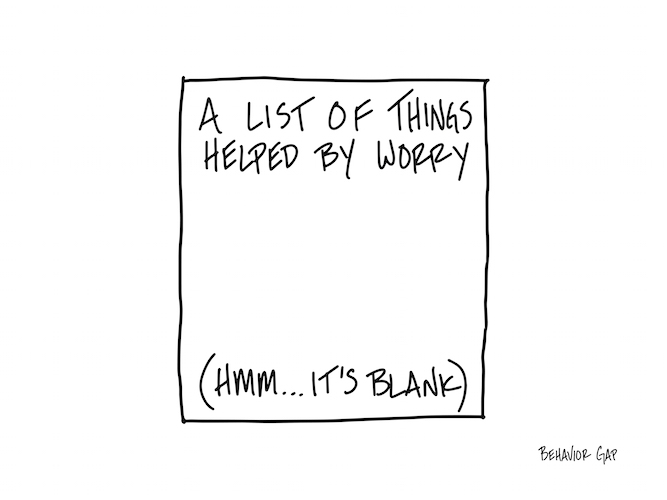Things Helped By Worry

Worry is a terrible strategy for solving problems.
But I have a confession to make: for a very long time, it was the only one I knew.
For example, each time I wrote a column for The New York Times, I was worried my editor would say, “Sorry, Carl, this just isn’t very good, I’m afraid that is the end of the Sketch Guy.” And then I would have to crawl under a rock, never to be heard from again.
I would bring my worries to my business partner (AKA wife). I would go on and on about, “What are we going to do if this happens?!” And when she seemed totally calm, I would say, “Aren’t you worried?!”
Because she’s generally unflappable, she would say, “I could be, if you want me to be, but I don’t see how it would help.”
It might feel like worrying helps. But as Shantideva put it:
“If you can solve your problem, then what is the need of worrying? If you can’t solve it, then what is the use of worrying?”
Worrying endlessly about something that may or may not happen in the future doesn’t help. But making a plan for what to do if that thing comes to pass does.
So now, when I catch myself starting to worry—which is often—I try to sit down and make a plan. And then I take that plan, file it away, and stop thinking about it.
That’s it. I don’t need to worry about that scenario anymore, because I have a plan.
Next time you find yourself in one of those cycles of worry, remember what Shantideva said. Action is a strategy, worry is not. So make a plan, put it away for safekeeping, and get back to work.

